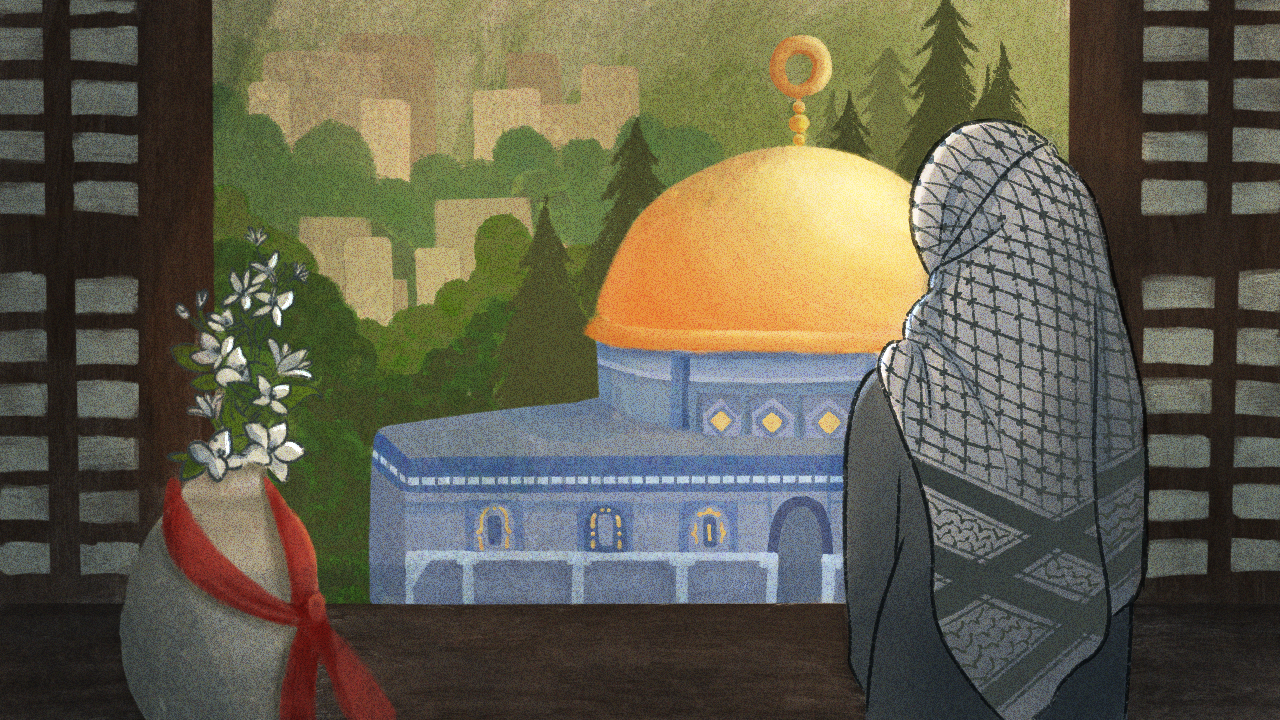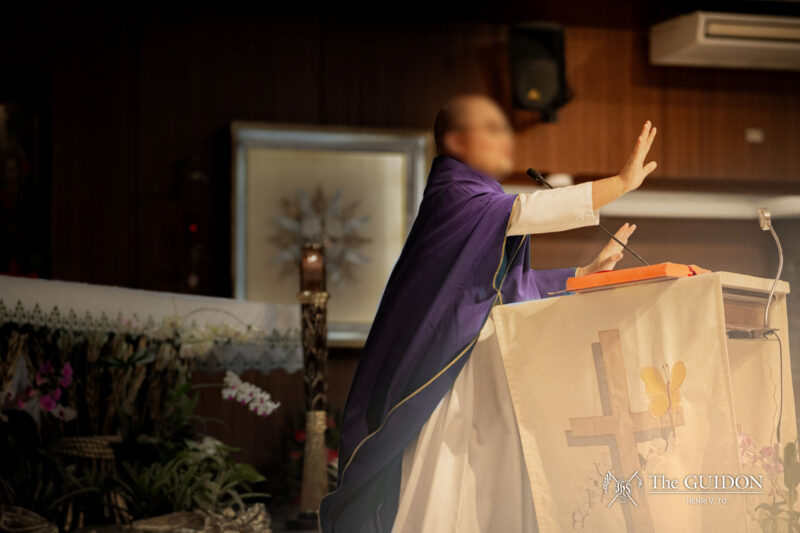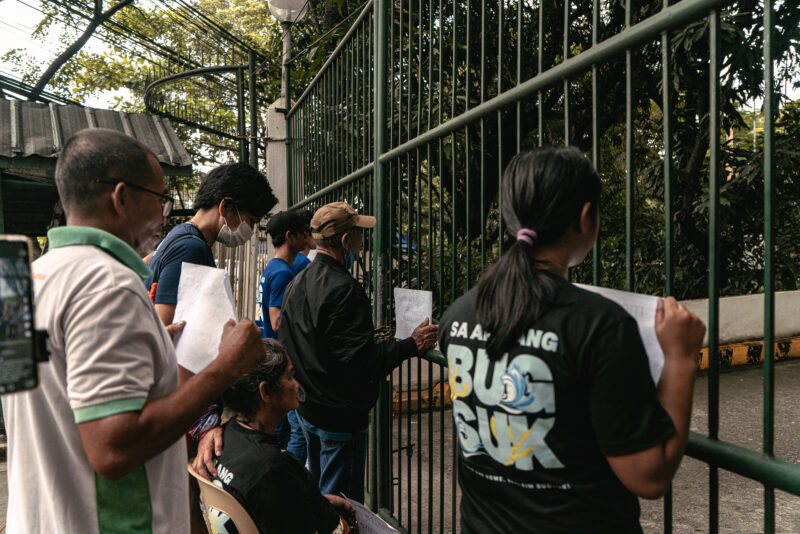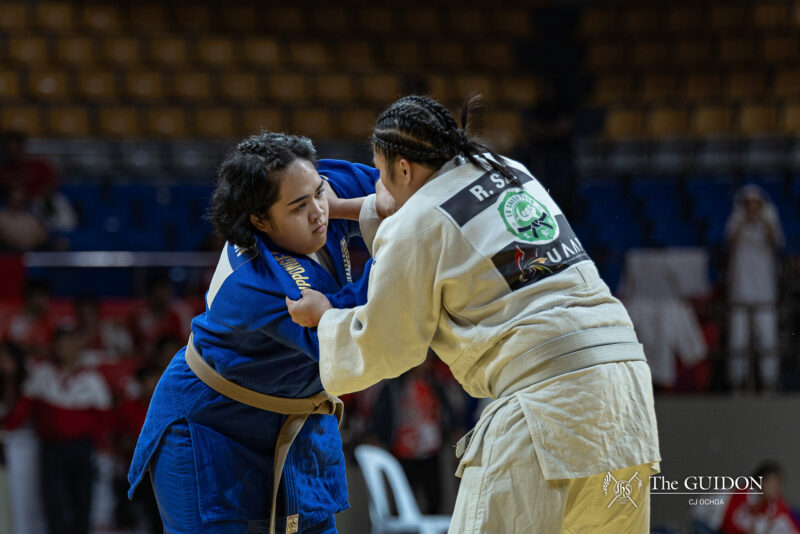As the illegal Israeli occupation turns Palestine into a graveyard, Filipino-Palestinian refugees seek shelter in the Philippines with the aid of volunteers. However, the search for security does not cease upon fleeing from war.
THE HISTORY between Israel and Palestine, stemming from territorial and political disputes, has spanned decades of wars and hostilities. The impact of these conflicts has caused another, where Palestine faces the ongoing illegal occupation at the hands of Israel.
Since October 7, 2023, the Palestinian Ministry of Health reports the nation’s heavy weight of loss, where one in every 100 people in Gaza has become a casualty of the relentless conflict. More than representing mere statistics, the overwhelming number of lives lost has left stories, memories, and loved ones who now grapple with immeasurable grief.
With the recent circumstances, refugees are forced to leave what was once the comfort of their homes. Palestinian civilians now find themselves in unfamiliar territories in order to seek refuge despite currents of fear and uncertainty.
Currents of solidarity
To escape violence and harm, numerous civilians have fled from the ongoing genocide in Gaza, including 50 Palestinian refugees—many of whom are notably families of Filipina wives who are settled in the Philippines. These families sought refuge and stayed temporarily at the University of the Philippines Diliman in Quezon City from November to December 2023.
However, the limitations on the volunteers’ resources and in-kind donations have caused Palestinian refugees to seek another shelter after December 21. These families, once again, are faced with the challenge of securing a new home during their stay in the Philippines.
While discourse on the issue may still often be divided, various Filipino organizations and individuals find themselves partaking in the humanitarian cause. In response to this crisis, the Philippine-Palestine Friendship Association (PPFA) stands as one of the many volunteer non-governmental organizations (NGOs) collaborating with Palestinian refugees. The NGO originated as a friendship association between two distinct communities, but it is better known as a network of Filipinos and Palestinians working together to combat shared challenges since 2016.
In recalling the pages of history, PPFA General-Secretary Pastor Alan Rey Sarte shares that Filipino activists and Arab and Palestinian students have already established a deep bond for years even before the NGO was founded.
Sarte also explains that Filipinos and Palestinians share a common denominator—the imperialism of the United States of America (USA). He asserts that the USA, which was historically a colonial power in the Philippines, now supports the illegal occupation of Israel in Palestine.
“We need to rally people to join in this struggle against imperialism—that other countries would like to control our lives. We see the state of Palestine. Bilang mga tao ay responsibilidad natin na makibahagi (As people, we have a responsibility to take part in the resistance),” Pastor Allan shares.
Despite the shared struggle, the PPFA knew since the onset of the war in Gaza that their solidarity with Palestine is not merely based on the affinity of the communities, but a humanitarian effort to assist the Palestinian refugees. One of the things the PPFA helps them with is the payment of rent since their legal papers are still not processed.
From the start, Pastor Allan disclaims that they are a network of volunteers, clarifying that they are not the government responsible for handling such difficult tasks. Nevertheless, they have taken upon themselves the task of coordinating with agencies for support.
Refuting refuge
Zenab* is just one member of the 36 families that were repatriated from Gaza by the Filipino government in early November 2023. However, the Department of Foreign Affairs (DFA) mentioned that they could not provide the families a place to stay, insisting that they reside with their relatives as much as possible. Since then, she and her family have been looking for temporary shelter in the kindness of strangers.
This reality is a far stretch from the lives they led in Palestine. Zenab and her family moved to Gaza in 1993 after the land and property were passed down to them. They spent the next 30 years carefully crafting a home for their children, a company they could work in, and a life they were genuinely happy to call theirs.
“We liked it more in Palestine than in the Philippines,” she says. “Their culture was our culture. Their land was our land.”
By October 2023, that statement would be retracted when Israel bombed Gaza. On the first day of the bombardment, Danny Denon, a member of the Israeli Knesset, said that the people of Gaza would have to “pay the price” for the attacks led by Hamas on Israel. The price paid by Zenab and her family is the complete uprooting of their lives to avoid being a number on the rising Palestinian death toll. Three decades of their lives were reduced to a 10-kilometer walk to the Gazan border where they would wait for a month to seek refuge in their homeland.
“Ka[ga]galing lang sa heart surgery ang asawa ko. Naglakad talaga siya kahit mahina ‘yung puso niya,” Zenab says.
(My husband just came from heart surgery. He walked all the way to the border with a weak heart.)
When the family reached the Philippines, Zenab recalls that her husband looked like a “zombie.” Unbeknownst to them, he was also suffering from diabetes. His glucose shot up to dangerous levels, requiring immediate medical attention—one they could not easily attain as they had only the clothes on their backs coming into the country.
At the time, their survival necessitated reliance on strangers. Fortunately, her husband received medical help from a contact, who also bridged them to a Redemptorist convent. The members of the convent then eventually linked them to the PPFA for assistance.
Kindness has its limits, however. The convent required a policy of silence—a condition that many of the refugee children could not uphold. Thus, the family sought shelter from Muslim group donors, but the new house they will live in is still under renovation—and that renovation time will be taken from the 6 months they are allowed to stay. While waiting, they stayed on a farm in Batangas, counting the weeks until they would eventually be kicked out.
A question of dignity
Throughout the ordeal, the government has been stingy with its financial support. The Egyptian embassy refused to give Zenab the $1,000 she was promised, stipulating that her son’s family already received the aid. Additionally, they claimed that she was still considered a part of his unit. The Philippine government did the same but without an explanation. “Sapat ba ’yun? (Is that fair?)” Zenab asks.
Less fair is the fact that these refugees have been completely stripped of a home that they built—only to be treated as less than in their country of origin. “We [the refugees] say, ‘Kawawa naman tayo, hindi ito ‘yung buhay natin sa Gaza’ (Poor us, this isn’t our life back in Gaza),” Zenab proclaims. “There, we have dignity.”
Dignity is the keyword in understanding the experiences of the refugees—the loss of it, in particular. The memory of the war has left them in constant pursuit of justice for themselves and their children in each river and sea they cross.
“The trauma of the war is still with us… ‘Yung mga apo ko, apat [na taon] ang isa tapos one and one-half ‘yung isa. Naririnig ko pa rin ang mga sigaw nila,” she cries.
(My grandchildren, one of them is four [years old] and the other is one and a half. I still hear their screams.)
*Editor’s Note: The interviewees’ names have been changed at their request to protect their identity and privacy.
Resources:
As the humanitarian crisis persists, the displaced Filipino-Palestinian refugees need support of any kind. If you are interested in contributing to the Philippine-Palestine Friendship Association, you may contact the organization through the following contact details:
- Address: 2nd Floor BLVM Building, National Council of Churches in the Philippines, EDSA, Quezon City
- Email: PPFA2023@proton.me







